A Round Robin of Witches: Black Gate Interviews the Creators of The Witches of Lublin
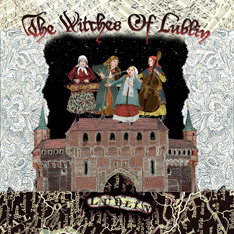
I think I first heard about The Witches of Lublin on Facebook.
You know me, I’m a sucker; you put the word “witches” in the title and I’m on it. So I grabbed up my broomstick, and flew over to Ellen Kushner’s FB page where she’d posted the link about it, and I said, “This looks incredibly cool!” (Or something to that effect.) “A radio play! I love radio plays!”
And then, about five seconds later, I had a little present in my email’s Inbox.
“Because you beg so prettily,” Ellen wrote.
And there is was, the not-quite-final-draft of Witches of Lublin. I sat down and read it in a gulp.
You can read a fuller synopsis about The Witches of Lublin story here, at the super bedazzling website created for the radio play, but basically it is about a family of women klezmer musicians in Poland of the late 18th century. They’re poor, proud and trying to make their way by making music, even though it is considered immodest for females to play in public. When word of their talent spreads beyond the little ghetto where they live and reaches the Count’s ears, things start to get dangerous — and magical.
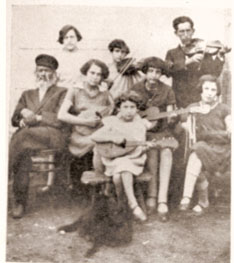
Co-writer Yale Strom’s research uncovered the facts that there were women klezmer musicians, and that when klezmers would play for gentile nobility, their reward could sometimes be beatings, death or even kidnappings.
This history formed the springboard for this work of fiction by Strom, Schwartz and Kushner based on Jewish women’s lives in 18th Century Europe, klezmer music and feminist history, with a healthy dose of magical realism thrown in.
You can see how I might say, in the trembling wake of reading this: “Oh, Ellen, oh pretty please, DO let me interview you about Witches for Black Gate Magazine!”
To which Ellen replied, quintessentially and in so many words, “Here, kid. I’ll do you one better.”
All of a sudden, I was interviewing the entire team of The Witches of Lublin’s creators — playwrights, composer and director — in a sort of mad merry-go-round-robin of emails. Which I now present to you for your reading pleasure.
An Interview with The Witches of Lublin Team: Ellen Kushner, Elizabeth Schwartz, Yale Strom and Sue Zizza
First, so you know who’s who, let’s meet the players.
DRAMATIS PERSONAE
Sue Zizza: Director / Co-Producer
Ellen Kushner: Playwright
Elizabeth Schwartz: Playwright
Yale Strom: Playwright & Composer
BLACK GATE: Playwrights — Where did you first encounter the story of women Klezmer musicians? Was it in a dusty history book? An old rumor or myth? Something a friend of a friend told your friend? Once given the seed, what path did it take to turn into a radio play?
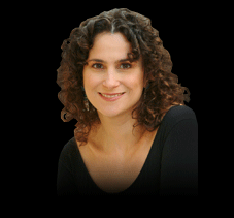
ELIZABETH: Yale should weigh in with specifics, but when he was conducting his exhaustive research for The Book of Klezmer, he told me this fascinating fact: that there had been women klezmers in the 18th Century.
Traditional Jewish culture of that period (as well as in certain circumstances today) stresses modesty for women, and that is why in particular, there is a ban on the sound of a woman’s voice (it’s called Kol Isha – a grown man who is quite religious is not supposed to listen to a woman’s singing). But this sense of modesty would also have extended to women’s performing music in public at all, which is why this discovery was so important.
Yale and I have been friends with Ellen for years and I remember the particular moment when this story idea took root: We were standing in Ellen’s lobby –
ELLEN: – right after I’d moved to NYC. Yale and Elizabeth were picking up my used packing boxes, because they were moving to San Diego! I was very sad.
ELIZABETH: – and she said, “You know, we should find a project to do together.” Don’t take this as gospel, but I think it was Yale who next suggested we work in radio, both because Ellen is the genius of radio from Sound & Spirit and because it’s the one medium (well, aside from painting or sculpture) in which we hadn’t produced anything.
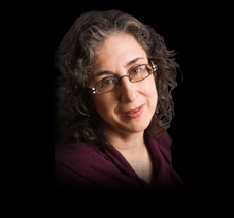
ELLEN: Oh, ha! That’s funny: Jane Yolen’s in my kitchen right now and was just saying she loves the way I keep expanding my horizons by working in different media. So I guess she’d love you guys, too!
ELIZABETH: I take credit for bringing up Yale’s discovery about women and klezmer. Then we began this amazing journey of working together. Yale and I are accustomed to “turning off the marriage” from 9 to 5 while we’re in the middle of a project and functioning as partners, but it was a new (and happily successful!) experience with Ellen.
And it was not only a good, productive experience, but very fascinating to translate a script for a listening audience. Mind you, all of this writing took place while we were across the country from each other, but fortunately we met up on both ends — and when the Michigan Festival of Sacred Music offered to produce the first workshop, we met halfway, too. After that first workshop, we wrote many more drafts –
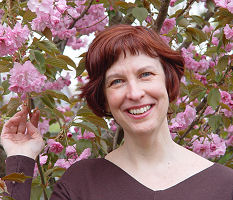
ELLEN: – And I should point out that my partner, historical fantasy writer Delia Sherman, was our “silent partner” in this: Many were the rewrites that she listened to, and the excellent dramaturgical advice she gave us!
We did readings of rough drafts for her around our dining room table in NYC (with Elizabeth and me playing all the parts) and on Yale and Elizabeth’s back porch in San Diego (ditto). . . and waited anxiously for the verdict — and the advice!
ELIZABETH: Delia was an essential member of the team. She not only gave us notes as precise as a surgeon’s cuts, she steered us expertly and fed us, too. There has to be a more apt title than Dramaturge . EK, what would they call it in Bordertown? Fairy-God-Dramaturge?
Anyway, after writing our drafts, we had some readings with wonderful actors in New York. By this point, we had gotten as far as we were going to get without a director.
Ellen can tell you how we connected to Sue Zizza [director] but she really hit the grand slam. Once Sue was involved, things happened very quickly.
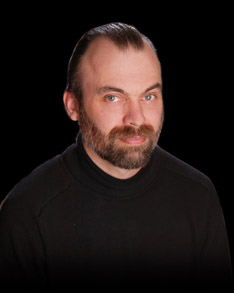
ELLEN: I’ll let Sue tell that story. But, yeah, we were incredibly lucky to get Sue Zizza and her partner, engineer David Shinn.
When you hear the final play, you probably won’t be aware of the complex and delicate technical work that went into it at their end: the layers of soundscape they created so that you feel you’re really in a Polish marketplace — and even how the Polish market is different from the Jewish market! The way doors open & close, even how the characters interrupt each other — all done in post-production in their magic studio.
I’d also like to add here that we’ve now got well over 50 stations carrying our show — and that even if your local station isn’t one of them, you can probably listen online to any of the 50 broadcasts. There’s also a CD of the show for sale, and it will be available in a few weeks on Audible.com. Info here & here.
SUE: SueMedia Productions is what I like to refer to as a small boutique audio publisher that takes one or two projects at a time and really focuses all our resources, time, and I think most importantly ‘love’ on a project. This began after I left being the Executive Director of the National Audio Theatre Festivals an organization I managed for more than 12 years. We will also work for others (like Blackstone and other bigger publishers), but we also like taking projects of our own – special works that really speak to me.
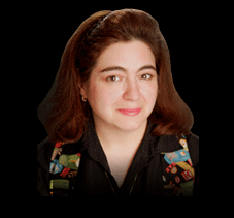
This became our template when in 2007 a stage play about Jack Kerouac came into my studio and I was asked to create the sound design for a regional Long Island production. As I worked on the project (and thanks to my friend the amazing engineer Marc Wiener), I began to notice it would make a great sound project. It was right at the time On The Road was turning 50, so I licensed the work and we had a lot of success in producing it as a special for public radio and a CD release with Len Cariou as our narrator and amazing performances by Drew Keil and a full cast. That was SueMedia’s first Audie nomination.
When my friend Jane Pipik of WGBH called to ask who I knew in New York that might be interested in helping Ellen, Elizabeth, and Yale bring Witches to life, I said to her, “Well, you know Jane, we’re done with the Kerouac project and I have been reading tons of stuff for new show possibilities, and except for a new story I’ve been mentoring Renee Pringle (of NPR) on called William’s Leap For Freedom for NATF this summer (2010), there isn’t much on my sonic plate.”
So Jane suggested to Ellen she and I meet and I proposed more than just directing the play to the group — that SueMedia would partner with them and also help with distribution and marketing once The Witches of Lublin was completed. I was at the Cannes Film Festival when they had their New York workshop so I only read the play. I fell in love with the story. The four of us had a few Skype discussions and by June of 2010 greed to move forward on producing the project.
In the meantime Renee and I finished William’s Leap for Freedom as a Black History Month Special with narrator Dion Graham, Mirron E. Willis, Barbara Rosenblat and a full cast. Delighted to report this became SueMedia’s second Audiie nomination — which we won’t know if we won till this May.
Once William was done all of our attention was turned on The Witches of Lublin.
YALE: Once the seed was planted we knew that radio drama was the way we wanted to tell the story. I have worked in film, written books, made recordings and have exhibited photos but I had not yet worked in the area of radio in terms of telling a story. I had composed music for a radio series but had not written a drama.
ELLEN: Yale, I’d love to hear your answer to this question! Where did you first encounter the story of women Klezmer musicians?
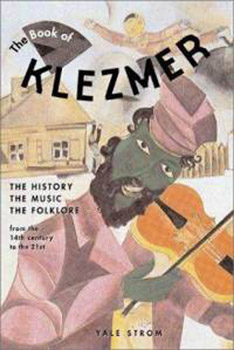 YALE: I found this for my book — The Book of Klezmer: The History, the Music, the Folklore: From the 14th Century to the 21st.
YALE: I found this for my book — The Book of Klezmer: The History, the Music, the Folklore: From the 14th Century to the 21st.
ELIZABETH: A bit more of this research:
“Despite the weight of Jewish custom against women playing music in public, daughters and wives played with their fathers and husbands and women performed on their own. Some of the more notable women were Khave Meyer from Dresden (1740-1742), Mariana Meyer from Dresden (performed with her father, 1739), Mariana from Halberstadt (1741), and Sofia from Halberstadt (1741).”
I. Lifschitz, “Yidishe Favayler oyf di Leiptsiger Yaridim”, in Arkhiv far der Geshikhte fun Yidishn Teater un Drama, ed. by Dr. Jacob Shatsky (Vilna – New York, 1930), Vol. I, pp. 450-53.
(Yale Strom, The Book of Klezmer: The History, the Music, The Folklore from the 14th Century to the 21st).
Additionally, the writers named the character Sofia after the real female klezmer Sofia from Haberstadt.
BLACK GATE: Yale, what sort of research went into the writing of the radio play and the composing of the score? Did the score used exist already before the play, or did they grow up together?
YALE: I had done a lot of research already in terms of the type of klezmer music that was played in the late 18th century so I was familiar with the genre. I used some tunes from the period and composed new ones but in the style as if they had been sung and played during the 18th century by Polish Jewish klezmer musicians.
BLACK GATE: Ellen and Elizabeth, while writing, did you already have specific voice actors in mind, and did you write the roles toward these ideals?
ELIZABETH: Speaking for myself, no. I always read my writing aloud, even if it’s not dialogue. I’m a musician! Once we got to the point where we’d fleshed out our characters and what each individual arc needed to be, the dialogue came very naturally — because the characters started telling us what they needed to say.
But obviously for any writer, there are elements of one’s own life and history that worm their way into the characters, which helps them take on real life qualities. There are a lot of elements from my family that are in this story, but I’m sure this is true, too, for Ellen and Yale (right, guys?). It really was a very mutual and happy collaboration. And very smooth sailing.
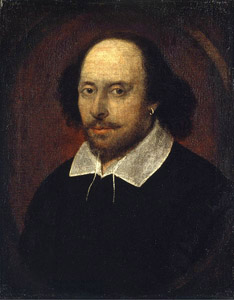
ELLEN: Hmmmm… Now I want to know the autobiographical bits, Elizabeth!
ELIZABETH: Oh, that’s going to get me in a bit of a sticky wicket… OK, Ellen, but this will be a private conversation with lots of wine and lots of excellent cheese (but not on a recording day!)
ELLEN: Truth be told, most of the plotline & characters came from the Schwartz/Strom household, in first drafts which I expanded or revised. I can only think of one line that came from my own experience (and, no, I’m not telling!). And I also threw in a little Shakespeare for extra drama. I had no specific actors or voices in mind, either.
YALE: Of course we all had our wish list of who we would like to see playing/speaking the role. But the writing had to come first and we did not want to be encumbered by writing certain dialogue for a specific actor in mind. The story had to be the driving artistic force behind our creativity.
BLACK GATE: Sue, how did you go about securing this cast of international talent? What were some of the difficulties? The rewards? Any interesting anecdotes about the casting process?
SUE: Before I answer any other question, I’d like to mention that as the director of this project I have found myself working in a very collaborative way with the writers. They had very clear ideas for their character’s story, so it made it possible for me to, layer by layer, bring this play off the page.
Casting for audio is not like casting for movies or TV, where the look and the sound of the person matters. In audio it is about the choir of voices you bring to the microphones that helps to define each character and keeps them clear in the listeners’ mind.
Having worked in audio drama and audio books in NY and around the country for close to 25 years, I have a group of actors whose voices and talents I have come to love and appreciate greatly, so they were the first people I contacted.
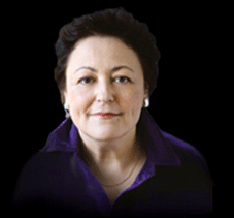
The interesting thing was that the writers had already had a workshop reading of this in May 2010 in NYC and had asked some of my favorite voices to be in that performance.
So it was easy to call Barbara Rosenblat, for example, and ask her to read for the recorded version of this because she already knew the play. And in fact was again cast as Mrs. Khaya — the butcher’s wife.
But I did need to start in some ways from scratch, recording each audition, and playing them against each other so I could be sure we were getting the best performance and keeping the overall sound clear and understandable.
Others, like Simon Jones, Tim Jerome, and Lucien Dodge, who had not been part of the May reading, I have been working with on public radio projects for many years. So I called and asked them to consider major and minor roles and they came in and read for me.
Simon, in fact, was particularly helpful in not only getting Neil Gaiman (a friend of author Ellen Kushner’s) to consider the role of Bogdan, because of their Hitchhiker’s Guide to the Galaxy connection, but also in finding the right sound and accent for their characters.
Prior to recording, Simon, Neil, and I spent more than an hour on the phone one Friday night last November, trying to tune the characters of Bogdan and the Graf, so they would not sound British (as both actors are) but regal and like father and son.
Then, because Neil was not with us on recording day in New York, when it came time to ‘wild track’ Neil’s lines, Simon came into the studio and re-read his scenes to give Neil someone to act off of — rather than just listen to tape bits of the Graf and respond.
It was quite the recording session with Simon in NY and Neil in Minneapolis, working over ISDN lines as if they were in the same room. Ellen also came in for support. In the end, I think we have some wonderful father and son moments throughout the play.
Tovah in the lead came through a suggestion of the other co-writers, Yale and Elizabeth, who had worked with her in California and asked if we could consider her as Rivke.
Having produced an audio project a few years earlier (“Edges”) in which Tovah was the lead, I knew she could bring the role a unique sound and balance to the cast. Once we were able to get the details worked out, we were thrilled to have her lead this cast. And once we had Tovah signed, I could complete the casting of the women in the play.
Some of the cast came from my relationship with the Audiobook world. I attended a networking event in New York in August and asked around to see who might like to read. Nick Sullivan and Joyce Feurring said they could come and read. They are new actors, to my ears, whom I hope to work with many more times over the years. Each so talented, with rich, textured voices that stand out in a crowd.
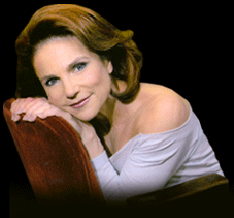
The wonderful audio director Paul Rubin suggested Yelena Shmulenson because of her skill with Yiddish. She became our Leah, the sensible daughter, as well as helped us get the Yiddish correct at the table read.
Joanne Borts and Sam Guncler came from the author’s suggestion and a recommendation to consider some Yiddish Theater actors. Joanne is well known for her singing and vocal work and brought the lively and musical Sorele to life with great flair and joy.
In the end, casting this project took 3 full days — after first recording many, many voices. Some in New York City and some on Long Island. We were very lucky that everyone who came in really loved the script — so they gave us their all — and understood that there were only so many roles (and dollars) to go around.
Among the background voices, I had the chance to work with Anne Bobby again, someone, as it turned out, the writers knew as well. Anne and I had worked on many SciFi stories over the years for a prior series, and so it was nice to have her on board to fill in the female ‘holes’ where needed.
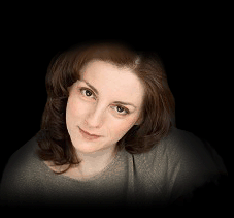
We also had a great group of background actors, the ones who you hear in the market or the party. These were Jim Mundy, Stewart Hamilton, Richard Solo, Sue Anne Dennehy, Courtney Hahn, and Ben Hall.
With the exception of Richard Solo, each one of them is a voice actor I have had the chance to work with on other projects.
Courtney and Ben are both still college students. Courtney and I worked together on a live multi-media project called Signal Flow, which I helped writer, produce and direct for the 50th Anniversary of WRHU-FM at Hofstra University. Ben Hall is a Freshman at NYU and really loved trying different voices in recording sessions in my class during the Fall of 2010. I invited them to come and work with the professional actors, and both had a wonderful time.
BLACK GATE: What was the recording process like? How long did it take? How many places did it take place in?
ELIZABETH: I am no stranger to a recording studio, and I am frankly used to getting a song down in two takes, maximum (sometimes in one — this isn’t boasting, just a function of not working in a genre where there is endless time and money to make a recording). So it didn’t seem at all strange to me that we recorded at such a fast clip.
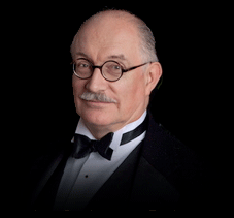
Everyone was prepared, and Sue and her amazing crew were just beyond competent and professional. And there was a lot of good food, which helps always! We recorded at Hofstra University on Long Island. Even though the studio was smallish, the fact that there were hallways and multiple rooms made it feel much less claustrophobic than other situations in which I’ve found myself (including a converted one-car garage, which is one of my regular recording spots and of which I am extremely fond).
It’s a privileged life, certainly, but as a singer I am always fearful of not being well rested, because fatigue really has an impact on your voice. For the Witches of Lublin recording, I was on West Coast time, averaging about 4 hours of sleep/night. Upon completing the final recordings of the actors on the second day, we then recorded a CD’s worth of the music from the play (as well as other music from that period and location) for a separate CD project: The Devil’s Brides. This was Sue’s great idea!
And BTW, exhausted as we were, we got that CD recorded quickly and quite well (if I can say so myself). Sue also suggested finding a host for that CD. We mentioned that we knew the British actress Miriam Margolyes — and Miriam was very happy to do this chore — so The Devil’s Brides, with music by our ensemble Hot Pstromi and narration by Miriam Margolyes, will be released by our UK label, ARC, in the fall!

ELLEN: It was thrill to watch professionals at work.
I wasn’t there for the music recording, but I’ll never forget the long, full day we all spent at Hofstra nailing the actors’ voice tracks. Tovah Feldshuh is in every scene, and gave her all for hour after hour with almost no break — and still made the authors cry!
All the actors could deliver whatever we wanted, and stop on a dime. All they had was their voices — they couldn’t really act with their bodies. And there we were on the other side of the glass, trying to make sure we didn’t want to rewrite any lines at the last minute… Amazing.
YALE: We had several table readings and three actual workshops. We had table readings in NYC at Ellen’s wonderful apt. At our home in San Diego, 2 workshops in NYC and a fully staged workshop with foley and live music in Kalamazoo.
SUE: Because of my relationship with WRHU we were able to do long days of primary voice and music recording there in early November 2011. As I mentioned before, Neil was not available on these dates so we used Argot Studios in NYC to record him from Minnesota, where he was in the Minnesota Public Radio studios and I was in New York with Simon Jones.
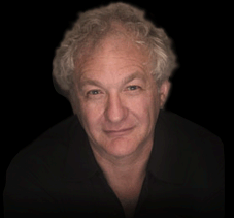
I got the call on Tuesday that Neil would be in Minneapolis doing Talk of the Nation and if we wanted to get him we had to be ready for a Thursday recording.
My engineer, David Shinn, pulled it all together in twenty-four hours. Ellen Kushner, Simon and Neil and I were ‘together’ recording as soon as he was done with his interview.
I was glad to have Ellen’s input, especially when the normally British-sounding Neil Gaiman kept having trouble with the word granddaughter. When he said it, it seemed to all of us listening Bogdan had become Irish, so I turned to Ellen and asked, “Can he say Grandchild instead?” which she approved and we moved on. Much better performance once he wasn’t worried about his accent!
At NYU, I was able to use the ADR and Foley rooms where I teach to record Ellen Kushner’s ins and outs and also audition the actors. It was between semesters, so the studios were being maintained and upgraded. We brought our own gear in, but used the quiet rooms. This made it easier to capture what each actor was doing with his or her voice.
BLACK GATE: Yale, you are “the world’s leading ethnographer-artist of klezmer music and history.” Do you have musicians you regularly work with? If so, who are they? How did you meet them? If not, what was the process of finding the right musicians for Witches? Where did you record? How many sessions did it take? What was the hardest part of recording? What was the best part?
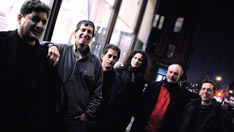
YALE: I work regularly with my guys – my bandmates in Hot Pstromi.
They are: Norbert Stachel (Reeds); Peter Stan (Accordion); Sprocket (Bass); David Licht (Percussion); Fred Benedetti (Guitar); Elizabeth Schwartz (Vocals); and Jeff Pekarek (Bass).
I met them all in various ways. Jeff I went to high school with, and Fred I have known since high school through Jeff — both in San Diego. Peter Stan I met through another wonderful accordion player I still play with: Ismail Butera. Sprocket I met through my buddy and fellow bass player Mark Dresser (he could not do the gig so he suggested Sprockett). David Licht (co-founder of the Klezmatics) I met in Krakow and we found out we went to the same elementary school in Detroit.
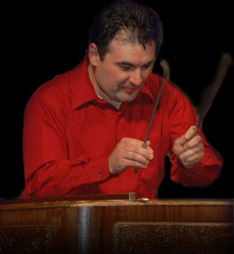
The process to get the right musicians was simple — I had played with Alex Fedoriouk before years ago and knew he was one of the best — if not the best tsimbl (hammer dulcimer) players in the country. He came in from Cleveland to play for the sound track and subsequent recording that will be separate, called The Devil’s Brides, which comes out on the ARC UK label fall 2011.
Sprocket plays bass excellently in the band — why look any further? For the CD, I added Peter Stan (a Roma) who really knows how to improvise. And of course for vocals, Elizabeth Schwartz, whom I have been working with since 1996.
We did not rehearse once — I sent them the tunes by email and we hit it and recorded the entire soundtrack in 12 hrs. Plus additional tunes/songs for The Devil’s Brides CD.
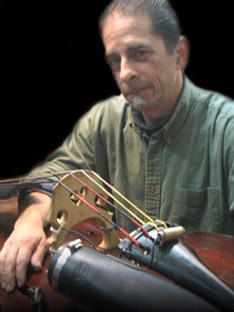
Hardest part of recording was getting tired, pushing ourselves to do one more take and then finding out from David Shin the sound engineer we had 30 minutes left and 2 tunes to record. Sometimes the best results come from being under time pressure and knowing you will not be able to take many different takes so you lay it all out on the line and go for it — warts and all.
What I am most proud of in the music of the play and subsequent CD, is that it really feels live. We all played at the same time in the same room and we did not cut and paste each other parts. What you hear on the CD is what you’ll get when we play live.
The best part was just playing with these incredible musicians. When we were all improvising it was like magic. People were dancing in the sound engineering booth while we cooked up some sonic mystical magic.
BLACK GATE: Did any weird, cool, unexpected events occur surrounding the making of Witches? Did angels bend down to earth and ascend with any of your number or anything like that?
ELIZABETH: Well, Yale and I were at a Jewish Genealogy conference in the summer of 2010, and while there we met both Miriam and Tovah Feldshuh.
They should have known when they said, “Oh, one day, I’d love to work with you,” that we would take it seriously. (Head’s up, if you offer a klezmer a guest room or a meal, we are likely to take you up on that, too. We do reciprocate). I recommend conferences. There might have been an angel or two there (it was, after all, in Los Angeles).

ELLEN: I truly think the Angel of our Witches was the one of Cooperation and Connection. Really great people kept attaching themselves to the project in unexpected ways.
Like, shortly after we got started, I met the actress Anne Bobby, who said, “Tell me about all your projects!” When she heard about this one, she said, “Any time you want me to get together a group of professional voice actors to do a reading for you authors so you can hear how it sounds, just let me know!”
And when we were ready, we did — and she did!
It was an amazing experience: really serious New York voice talent just showing up for an afternoon of rehearsal & performance (because of course we ended up inviting some 20-30 friends and colleagues to listen and critique) and giving a professional reading. Some of these folks have since become good friends.
YALE: That it all came together in two days. We crammed a lot in and everyone came through. All the performances were superb.
SUE: Yes, for me many times. Here are just a few examples:
Funding – while we still haven’t collected all we possibly can for the production, we were able to put together the primary funds needed to record and do the first level of mixing for broadcast in less than 3 months.
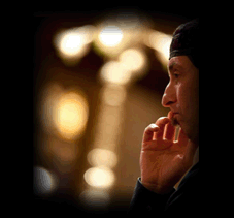
Recording – given how many actors are in the cast, it was a miracle that we only had one missing the day of the voice recording.
Mixing – every time we went in to work on the tracks some little thing I heard would spark my imagination and little bits of music would appear just as needed for transitions and all. And David was able to take what I heard and explained to him, and make it a sonic reality.
Performance Possibilities – I recently reconnected with an old friend who is now at a school in NYC that is very interested in the play for live performance because it fits their focus for Jewish culture, music and religion. I can’t name the school just yet because we are only in early discussions, but it has made me feel very positive that next Spring we’ll see at least 100+ stations airing the program and one or two live performances in NYC.
BLACK GATE: Do you have any ideas of adapting this radio play into other formats? Stage play? Film? Novel? If not, what makes it work best in its present form? A radio play is such a wonderful medium, but I bet the competition is stiff and distribution difficult. Why a radio play in the first place?
ELIZABETH: Most certainly and hopefully! We are discussing creating both a live stage version of the play, as well as a graphic novel. The wonderful thing about imagination and creativity is they only regulate and limit themselves (if that makes sense). I think I answered about why radio above.
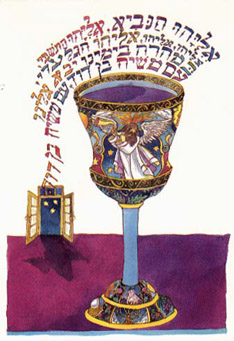
ELLEN: From my experience in public radio, I know that stations are hungry for Holiday Specials — and Passover is a very important Jewish holiday that falls near Easter, so stations are eager to offer something around then.
Part of my radio career was built on offering unusual Jewish holiday specials, ones that go deeper into the meaning of Jewish tradition, observance and history.
I knew Yale and Elizabeth were the perfect partners to create something that went beyond the usual Jewish holiday fare . . . and I was counting on the trust I’ve built with stations over the years to make them want to bring this unusual project to their air.
If this were just a regular radio play, frankly there would be very little chance of its getting aired; big stations in the U.S.A. are very reluctant to give up an hour of their regular airtime to radio drama. Regrettable, but that’s how it is. But if it’s a Jewish Holiday Special, suddenly they’ll find the space for it! (Mwa-ha)
I love radio drama: You can play the movie in your mind. While driving — or scrubbing a floor or peeling carrots or painting a wall. I am absurdly proud of the fact that we have managed to get one on the air here.
YALE: I would love to see this adapted into a graphic novel as well as a stage play. The story, the drama and the music all lends itself to a stage play — so if anyone out there is reading this and wants to help produce the staged version of The Witches of Lublin please contact us!
SUE: In addition to The Devil’s Bride music CD, which is also being released as a companion to the Witches play on Audible, we have been discussing a few live performance ideas. I have a ‘show’ version that I call “Deconstructing The Witches of Lublin” which would allow us to perform highlights from the play and open the process up to the audience. We’ve also talked about ways to offer the program complete so that Jewish Cultural Centers could produce it on their own with our music and sound effects provided to them. Right now I refer to it as “Witches in a Box”.
BLACK GATE: Did the research and the toil and the fun of this experience plant seeds for further collaborations? If so, will you give us some hints?
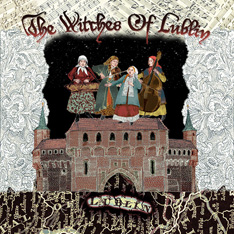
YALE: We hope to have another installment of the Witches where we find they have crossed through time into another era and bring their pluck, luck and mystical music to help tell another intriguing story that is a part of Jewish history.
SUE: I really loved the collaborative nature of working with Ellen, Elizabeth and Yale and, if they would have me, would be happy to consider another project together. I would love to explore some of these characters, especially Rivke and her eldest daughter, Rukhel, Sofia’s mother, who has died before the play opens. I think there must be some wonderful stories there to tell. OR something completely new…
ELIZABETH: Hmmm, how much should I give away here? Let’s just say that The Witches of Lublin ends without an ending, so… stay tuned! (Literally).
Black Gate Magazine would like to thank Sue, Elizabeth and Yale — and especially Ellen Kushner, who alerted me to Witches in the first place — for taking the time out of their busy schedules to give this interview. Thank you also, Ilene Winn-Lederer, for permission to use your artwork.
As for me, personally, I can say that Barbara Rosenblat is one of my favorite Voice Actors in the whole wide world. I have devoted innumerable hours to her narrations of the Amelia Peabody mystery novels. For her alone, I would have loved this radio play.
…There just happen to be about one billion other reasons to love it too!
I can’t wait to sit and have a listen. I urge you to hunt down The Witches of Lublin on an online radio station and give your ear some really good theatre.
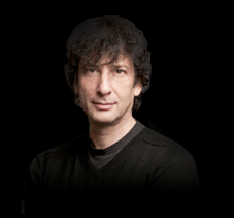
Thanks for this wonderfully rich interview. I can’t wait to wrap my ears around this play. (They’re indefinitely extensible.)
One thing I was wondering that I haven’t seen addressed anywhere: is this work riffing on (or otherwise bouncing off) Isaac Bashevis Singer’s THE MAGICIAN OF LUBLIN? Or is the title an accidental resemblance?
Great question! I will see what I can found out…
DEAR JAMES! (Of the indefinitely extensible earlobes!)
Here’s what Elizabeth Schwartz had to say:
“Hi, Claire! We were of course aware of the Magician of Lublin, but it wasn’t a riff or bounce – it was just the title that we liked best! (ES)”
But then, ha, Ellen Kushner says:
Really? I thought we were perfectly aware that it was indeed a takeoff on the Singer title, and were being a bit tongue-in-cheek(y)… And now, of course, we’re paying for our levity, as a couple of places have referred to the upcoming show as “a radio adaptation of the classic Singer story.”